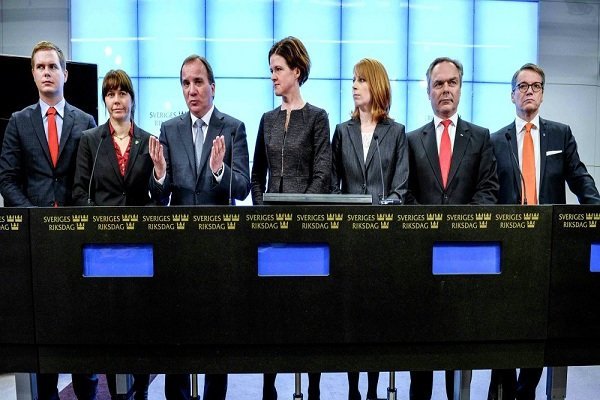Did the Far-right Really Win the Sweden's Elections?

General elections were held in Sweden on Sunday 9 September 2018, to elect the 349 members of the Sweden Parliament (Riksdag). They in turn will elect the Prime Minister of Sweden. Regional and municipal elections were also held on the same day.
Sweden has been facing a political impasse after its mainstream center-left and center-right blocs virtually tied in an election on Sunday, while the far right — which neither wants to deal with — made gains on a hardline anti-immigration platform.
With nearly all votes counted on Monday, the ruling center-left Social Democrats and Greens and their Left Party parliamentary ally had 40.6 per cent of the vote, while the opposition center-right Alliance had 40.3 per cent. The Sweden Democrats, with roots in a neo-Nazi movement, won about 18 per cent, up from the 13 per cent gained four years earlier.
Under such circumstances, forming a coalition government is rather difficult in Sweden, with the country's two traditional parties attempting to hold negotiations just to curb the Far-right extremists. Nevertheless there's a very important point regarding the recent elections that should be taken into consideration:
Sweden Democrats, a right-wing political party in Sweden, which was founded in 1988, is described as right-wing populist, and anti-immigration. Jimmie Åkesson has been party leader since 2005. This party received increased support in the 2014 Swedish general election, when it polled 12.9% and secured 49 seats in parliament, becoming the third largest party in Sweden. But the the Sweden Democrats have remained isolated in the Riksdag because the other parties staunchly maintain a policy of refusing cooperation with them.
That is the reason why the Democratic Party, and Jimmie Åkesson's strong presence at top of the political and executive equations in Stockholm are ruled out. The improvement in the vote of the democrats in the Swedish general election has been interpreted differently by various sources. Some analysts believe that Swedish extremists had a great success in the recent elections. However, some argue that the real story of Sweden’s election is not, as the prevailing narrative has it, the irresistible onward March of Europe’s far right.
The fact is that the far-right activists failed in Sweden's general election: They failed to achieve their goal of gaining 25 to 30 percent of the general vote. True, the Swedish Democratic Party is still there as the third most powerful Swedish party in the recent election, but this is not exactly what while Jimmie Åkesson was after; to become the most powerful party in the country with winning the majority of the whole vote.
Though people like Jean-Marie Le Pen, the right-wing extremists' leader in France, speak of the Swedish Democrats' victory, the truth is something else!
Interestingly, surveys conducted before the Swedish general election indicate that Jimmie Åkesson and his entourage would be able to win at least 25% of the vote. But recent results suggest that some of the people who were supposed to vote for the Democratic Party in Sweden, had eventually decided to vote for the traditional parties.
In this way, at least until 2022, Sweden is rescued from a serious crisis called "right-extremism dominance over Stockholm". If Axon and his associates come to power in Sweden, we will see the destruction of the multicultural society of Sweden on the one hand and the creation of some fundamental changes in the structure of the "welfare state" in this country on the other hand. And it should be noted that the development of populist policies in the welfare state will definitely lead to the elimination of the achievements that the Swedes have been struggling to deploy at the welfare and economic levels of society for decades.
Leave a Comment